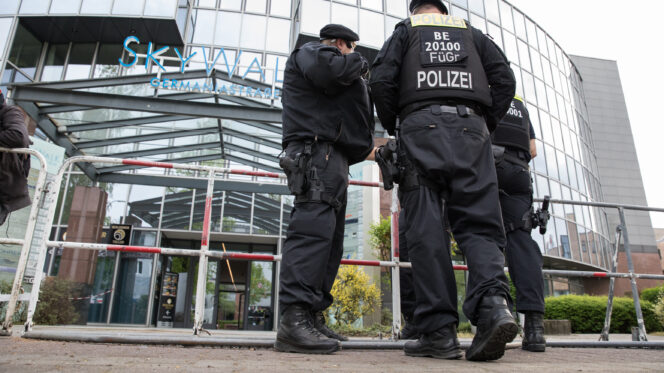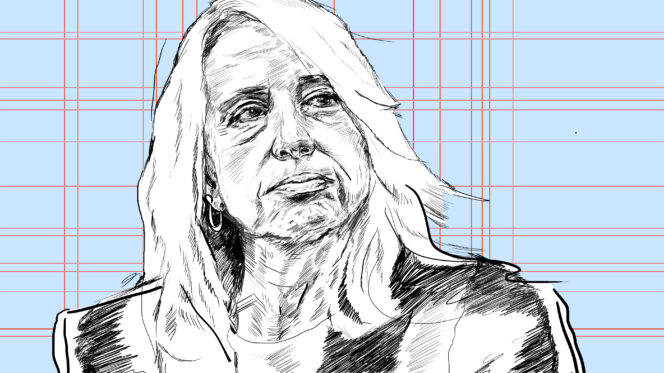When Governments Fail, We Sail: Massive Aid Flotilla Prepares to Head for Gaza

In Istanbul, a flotilla of ships is preparing to depart with 5,500 tonnes of aid and around 1,000 medics, lawyers, senior politicians and human rights observers. Its destination: the Gaza Strip.
On Sunday, the Gaza Freedom Flotilla will begin making its way to the besieged strip, its fifth voyage in 14 years. While the journey would normally take three to four days, it is expected that the flotilla – initially comprising three vessels, one cargo and two passenger ships, with further vessels expected to join later – could be waylaid by Israeli forces.
In a report broadcast on Thursday evening on Israel’s Channel 12, anonymous government officials expressed their hope that the flotilla would be indefinitely postponed.
For those trapped in Gaza, the flotilla – which is carrying food, fresh water and medicine, among other necessities – can’t come quickly enough. In March the Integrated Food Security Phase Classification reported that Gaza had the largest percentage of a population in a state of “catastrophic” hunger, its worst category, since the organisation began reporting in 2004.
Several human rights groups have asserted that Israel is using starvation as a weapon of war, choking off humanitarian aid to an even greater extent than the country had done prior to 7 October.
As part of its provisional measures announced in late January in response to South Africa’s genocide case against Israel, the International Court of Justice (ICJ) ordered that Israel immediately enable the delivery of humanitarian aid. Several human rights groups including Human Rights Watch and Oxfam have reported that Israel is ignoring the ICJ ruling, though under intense international pressure (particularly from the US) this may be beginning to change: in early April, Israel reopened the Erez crossing and the port of Ashdod, and on Friday the country claimed it had nearly doubled the number of aid trucks it was admitting.
Yet as Israel-allied global powers offer crumbs to the people of Gaza (the UK’s largest aid donation since 7 October weighed 2,000 tonnes, less than half of the flotilla’s load), a group of citizen activists is taking matters into their own hands.
The flotilla is organised by the Freedom Flotilla Coalition (FFC), which brings together 12 national groups from Canada, Malaysia, Italy, Norway, the US, Sweden, Spain, Turkey, South Africa, New Zealand, the UK and France. Altogether, delegates from over 30 countries will be represented on board.
The flotilla’s crew and passengers – among them Che Guevara’s daughter Aleida and Nelson Mandela’s grandson Zwelivelile – will be unarmed. Their peacefulness will not guarantee their safety, however, as the Israeli state has a long and bloody history of targeting humanitarian groups.
The flotilla’s first voyage to Gaza in May 2010 was a bloodbath: Israel sent a naval ship to meet it, killing 10 crew members (all of them Turkish, including one Turkish American dual national) and injuring 30. A UN report later found that Israel appeared to have executed at least six people in an “extra-legal, arbitrary and summary” manner; a Turkish state autopsy found that five had been shot in the head at close range.
Israel subsequently apologised to Turkey for the raid and agreed to compensate the bereaved families $20m. Further voyages in 2015, 2016 and 2018 saw Israel seize the FFC’s ships and detain and deport those on board.
Israel has also targeted humanitarian workers on land. Earlier this month, the Israel Defense Forces (IDF) killed seven World Central Kitchen (WCK) food aid workers, among them three British citizens, in a drone attack on a marked convoy whose movements had been coordinated with the IDF. An Israeli investigation blamed “grave errors”, a finding WCK rejected.
Nor are Palestinians likely to be safe when receiving the flotilla’s aid. In the so-called Flour Massacre of 29 February, over 100 Palestinians were killed and 700 injured after Israeli soldiers opened fire on a crowd unloading food aid.
Ann Wright is a former US army colonel and diplomat and sits on the steering committee of FFC. In a video posted to X/Twitter last week, Wright called upon the international community to “protect this effort … to end the genocide of Gaza”. The flotilla has been coordinating with both the United Nations and its relief and works agency for Palestinian refugees (UNRWA), however its safety will rely mostly on Israel’s willingness to abide by international law, as the convoy is travelling without weapons, armour, security or escorts. The FFC does not engage with the Israeli government.
“We understand that Israel might attack us,” Palestinian American lawyer Huwaida Arraf told Reuters on Thursday. “With all eyes on our ships, we hope that Israel will decide not to. But if they do, again, people on board will be trained in nonviolent resistance.”
At a press conference on Friday morning, Malaysian delegate Dr Fauziah Mohd Hasan said that the flotilla aimed to counter Israel’s distraction tactics and keep the world’s eyes on Gaza. “The freedom flotilla stands here to remind the world that with all the escalation between Israel and Iran, the killing is continuing and occurring in Gaza right now.
“While the two countries go back and forth, we cannot let Israel’s attempt to distract the world from what is causing more death, more disease, more destruction, and Israel’s policy of starvation and continued bombardment of unarmed Palestinians in Gaza, mostly women and children.”
Ismail Moola represents FFC member South Africa’s Palestine Solidarity Alliance. In a statement published on FFC’s website in early April, Moola said: “The [ICJ’s] ruling requires the whole world to play their part to stop the genocide unfolding in Gaza, including unobstructed access to vital aid.
“While our governments fail to lead in these urgently required humanitarian responses, people of conscience and our grassroots organizations must act to take leadership. When governments fail, we sail!”
Rivkah Brown is a commissioning editor and reporter at Novara Media.


